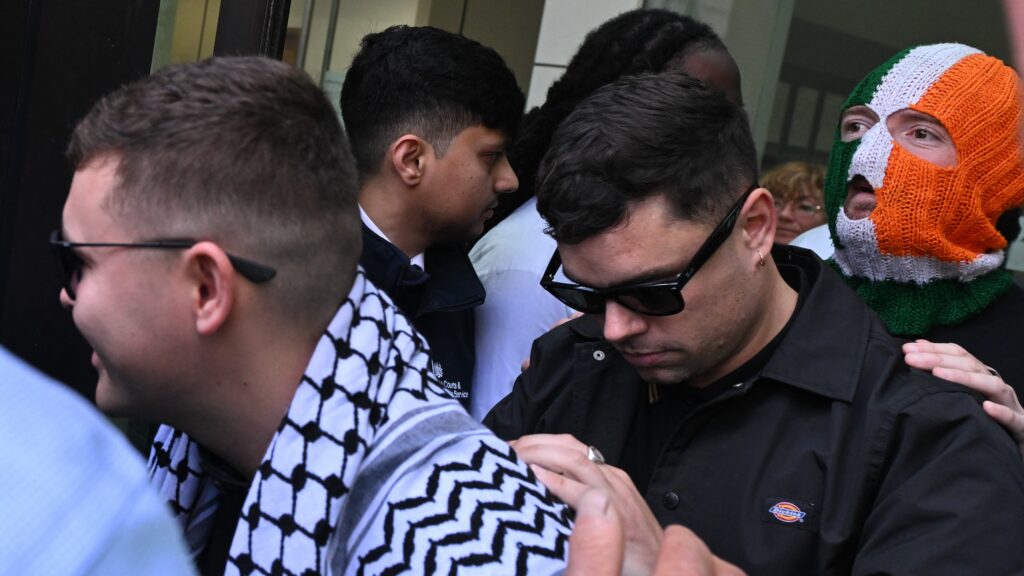A large part of the Hungarian public was puzzled, to say the least, when Robert C. Castel, an Israeli security policy expert of Transylvanian Hungarian origin and a veteran of the IDF recently said in Győr: ‘It’s a bit of a strange irony of fate that the last great truly European leader in world politics was Adolf Hitler; I say that as a Jew.’
Castel later clarified that he meant the following: ‘Adolf Hitler was the last European leader to try to define a new world order from within Europe. After 1945, the world order was defined by leaders outside Europe. Anyone who expects to hear a praise of Hitler from the child of Holocaust survivors is probably a little too eager for some Hitler-appreciation.’
Following his controversial remarks in Győr, quite a lot of criticism was directed at Castel, some of them by Sándor Csintalan, a former Socialist politician and pro-opposition TV-personality. In his rant on social media, Csintalan declared : ‘Scandal! The audience tolerated it without a word. (Orbán’s system) lures here and pays all the Nazi fools in the world.’ He then went on to compare Hungary to a ‘mental asylum’, and Orbán’s conservative system to ‘Hitler’s new world order’.
One does not have to agree with Castel to see a certain problem here. What is really interesting about the incident is not that a security policy expert would use poorly chosen words that he would later need to clarify, nor that outrage would follow. It is more interesting to see that Jews can be labelled ‘Nazis’ nowadays, but of course only if they happen to be on the right.
Surprising as it may seem, even long before Auschwitz, comparing Jews to Hitler was already a thing in Jewish public life.
Interestingly, one of the very first such comparisons is dated 15 September 1930, when Adolf Hitler was not yet in power.
David Ben-Gurion, who would later become the founding Prime Minister of the State of Israel, was in Berlin at the time; that was when the Nazis became the second largest party in the German Reichstag. As he wrote in his diary, ‘the deafening victory of the German revisionists was greater than anyone could have predicted’.[i] Here he compared the Nazis to the Revisionist Zionists, the forerunners of today’s Likud.
Even later, Ben-Gurion would refer to the leader of the revisionists, Vladimir Jabotinsky, as ‘Vladimir Hitler’.[ii]
Jabotinsky himself did not mince his words when he had to fire back at the Zionist left in 1932 and wrote an article against Ben-Gurion’s Mapai party entitled ‘The Red Swastika’.[iii]
The epithets continued to be used even after the Holocaust. As Ben-Gurion wrote in 1963 of Menachem Begin in a private letter, ‘Begin is obviously a hitlerite. He is a racist who wants to destroy all Arabs for the sake of Greater Israel…He wants to lead Israel as Hitler once led Germany.’[iv]
But these were at least the debates of the great leaders of the Jewish people. Today, lowlier public commentators use the name of the Holocaust in vain.
The comparing of right-wing Jews to Hitler is a habit of theirs. In 2018, a required lecture for University of Michigan art students featured a speaker who compared Israel’s Prime Minister Benjamin Netanyahu to Hitler.
In 2020, Sadi Ben Shitrit, an Israeli activist, compared Netanyahu to Hitler at a demonstration, saying that ‘In the 30s, there was a bitter enemy of the Jews. He was in Germany, and he acted just like you; divided, incited, destroyed.’
At this point we have to ask: what does the word Nazi even mean if Jews, sometimes descendants of Holocaust survivors, can themselves be called Nazis? What does the word Nazi mean if an Israeli security policy expert or the prime minister of the world’s only Jewish state can be described as a Nazi—but the president of a far-right, anti-Semitic party cannot (at least not according to US Ambassador David Pressman, otherwise he would not have invited him to his LGBTQ-themed seder night).
In the recent past, we have been witnessing a full-scale semantic dissolution; the words good and bad have come to mean nothing, just as war and peace, truth and lies seem to mean little. Anti-Semitic and philosemitic, Jew and Gentile, Nazi and non-Nazi are being quickly added to the list. Today, confirmed anti-Semites may be the ‘great friends of the Jews’, but members and sympathisers of the government that proclaims ‘zero tolerance’ regarding anti-Semitism at all international and domestic fora, and which unequivocally stands by and up for Israel, can be labelled as the ‘new anti-Semites’. Israelis cannot invoke the Holocaust as an argument of her legitimacy and a historical event of her people, because the ‘new Jews’ are Palestinians and migrants. Now ‘Nazi’ apparently denotes a right-wing Jew in some circles, while Nazis seem to be the ‘guests of honour’ at seder tables.
In our heated debates about Israel, Putin, migration or antisemitism today we may easily forget that by using certain comparisons, we are disrespecting the immense pain and suffering of innocent people. So let us always remember that preserving the memory of the Holocaust is to hold sacred the history of our ancestors and loved ones who suffered unspeakable horrors. Let us refuse, once and for all, to use their pain and trauma as a weapon in today’s political battlegrounds, and instead seek out different sources and comparisons for our public debates.
[i] Tom Segev, The Seventh Million. The Israelis and the Holocaust, New York, Henry Holt, 1991, 24.
[ii] Segev, The Seventh Million.
[iii] Segev, The Seventh Million.
[iv] Segev, The Seventh Million, 375.
Related articles:








